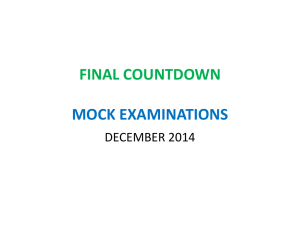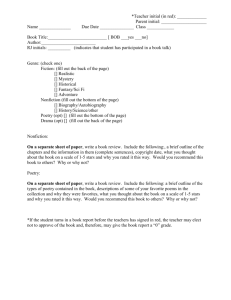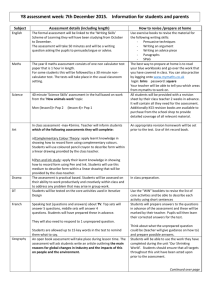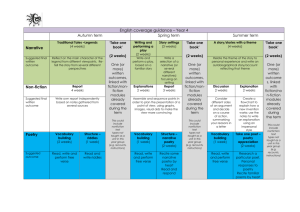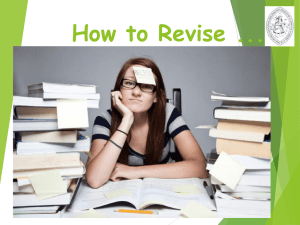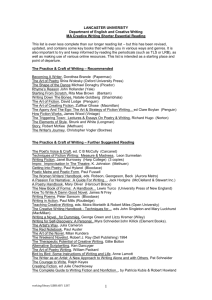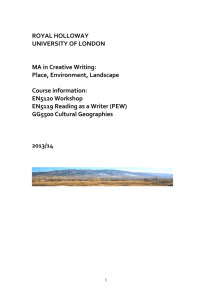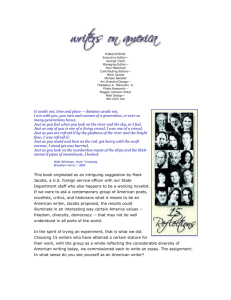Creative Writing Elective
advertisement
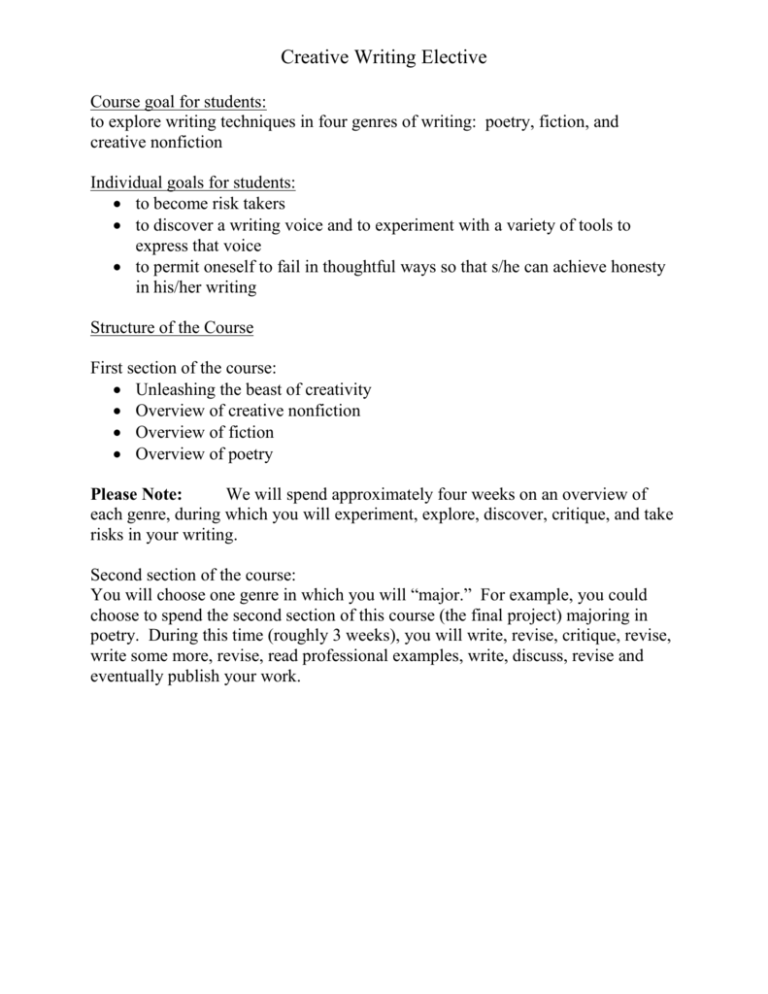
Creative Writing Elective Course goal for students: to explore writing techniques in four genres of writing: poetry, fiction, and creative nonfiction Individual goals for students: to become risk takers to discover a writing voice and to experiment with a variety of tools to express that voice to permit oneself to fail in thoughtful ways so that s/he can achieve honesty in his/her writing Structure of the Course First section of the course: Unleashing the beast of creativity Overview of creative nonfiction Overview of fiction Overview of poetry Please Note: We will spend approximately four weeks on an overview of each genre, during which you will experiment, explore, discover, critique, and take risks in your writing. Second section of the course: You will choose one genre in which you will “major.” For example, you could choose to spend the second section of this course (the final project) majoring in poetry. During this time (roughly 3 weeks), you will write, revise, critique, revise, write some more, revise, read professional examples, write, discuss, revise and eventually publish your work. A Creative Writer…. is open and responsive to feedback/critique effectively utilizes literary elements (e.g. imagery, similes, metaphors, symbols, sound devices, etc.) in his/her writing demonstrates growth (This may include a growth in your willingness to share work, accept feedback, etc.) writes every day, or nearly every day (This may include maintaining your daily journal.) pursues revision avidly* takes risks** *Pursues revision avidly Growth as a writer evolves from the process of revision. RE-VISION = TO LOOK BACK; TO VIEW AGAIN Yes, you must write, rewrite, start over, write, rewrite, starts over again, and so on, ad nauseam. Revision is at the heart of becoming an accomplished writer—accomplished writers will tell you this. You may work and rework the same piece of short fiction or poetry for weeks. That’s okay. I’m looking for your growth as a writer, not the number of pieces you produce. In other words, I want you to demonstrate that you have truly thought about and played with the words and ideas in each piece of writing. **Takes risks What does it mean to take risks? I’m not going to ask you to take physical risks. I’m not going to ask you to bare your soul in front of a full class of your peers. I am, however, going to challenge you to seek the writing self who is buried underneath the selfconsciousness created by societal expectations, personal prejudices, peer pressure, and all of the other debris that blocks our creativity. You may fail from taking risks. That, too, is okay. In most cases, true success ultimately springs from failure. So when you take the risk and fail, fail flagrantly! Your eventual success will feel that much more gratifying.
